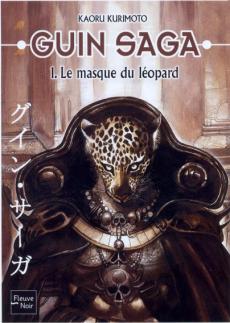 I’ve had a reader ask me how to pronounce “Guin.” Well, just like it’s spelled. The “u” is long. The “i” is really a schwa — symbolized with that upside-down e thingy. I’m trying to find a font set that let’s me show this. Try this: GY?-?n or GYOO-en.
I’ve had a reader ask me how to pronounce “Guin.” Well, just like it’s spelled. The “u” is long. The “i” is really a schwa — symbolized with that upside-down e thingy. I’m trying to find a font set that let’s me show this. Try this: GY?-?n or GYOO-en.
It’s not hard to pronounce, or wouldn’t be except for the fact the GYOO sound is rarely used in English. We do FYOO as in “few.” So the use of a consonant followed by a “y” sound is common enough, but not with a “g.”
It’s not GWIN as in Guinn, Gwin, or Gwinn. Nor is it GOO-en, which sounds too, you know, gooey.
We actually have a family branch that spells it Gewin, in hopes of avoiding the inevitable mispronunciations. The theory, I suppose, is that the similarities of the “Gew-” to “few” would make it obvious. Bad theory.
Around here (West Alabama), it’s a fairly common name. There’s a town called Guin (I’m not from there) and a neighboring town called Gu-Win — because it’s between Guin and Winfield. Really. Gu-Win is pronounced GYOO – WIN. It’s all very confusing.
The origin of the name is lost to history. I have some relatives who are amateur genealogists, and they think it’s contracted from a French name, like maybe Gauguin. Which doesn’t remotely explain the pronunciation.
PS — I just discovered the Guin Sagas. It’s a Japanese anime series. I suspect that Japanese pronounce it quite another way entirely — but it’s a cool picture. (Just hope the Japanese words aren’t profane or anything.)




I've always wondered if I was saying you're name right when talking to others about your blog. I wasn't:( Now I can:)
our son thought your name was Jage Uin! Ha!
Thanks. Now I know.
Royce
I always thought it was derived from the Welsh for "white".
I think this is right. "Ge" would phonetically be a soft, not hard "G", because it is followed by e, i, or y; like the word "gem." So Gewin would be pronounced "Jew -in."
Play with that.
Niece Cathy,
The Welsh for "white" is gwen or gwyn.
"W" is pronounced oo or short-u. "E" is normally a short-e. "Y" can be short or like the "y" in happy.
Hence, gwen is goo-en, which is close.
However, "ew" is a dipthong that sounds like "you." Oddly enough, "Gewin" would be pronounced Gyoo-en — meaning that "Gewin" might be the Welsh original, and Guin a change in a desperate effort to get it pronounced right — which rarely happens.
http://www.summitpost.org/article/316895/a-guide-… is a guide to Welsh pronunciation.
"Gewin" means labor, a battle, or agony. (There are many who'd agree with the third option.)
http://books.google.com/books?id=VfJJAAAAYAAJ&…
Granddaddy will be peeved to learn that the Gewin branch might have the original spelling. I'm sticking with the French theory. It's always easy to blame the French.
Once you get through all the spelling and pronunciation shifts that come with time and travel, it's practically impossible to say what the original was. But, y'know, we're all so melanin-deficient, "white" 'just made sense to me… *grin*
My middle son majored in Japanese, so I asked him to translate the Japanese on the book cover to make sure it wasn't something unexpected. He said it's "Guin Saga," just like the English title … only he pronounced it very fast and it sounded like GWEENsahgah. Slowing it down, evidently your name is pronounced GOO-EEN in Japanese. Just for the record. At least you know you're not insulting someone in Japanese by posting the book cover.